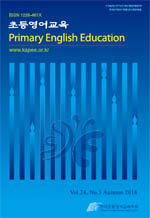As of March 1, 2018, the Ministry of Education in Korea started enforcing a ban on after-school English programs for first- and second-year elementary school students. This measure is pursuant to ‘Special Act on the Promotion of Public Education Normalization and Regulation on Pre-curriculum Education’, a law prohibiting operation of any school course ahead of the established curricula. Under this law, elementary schools are not allowed to provide after-school English programs for first- and second-year students since English education officially starts at the third grade. This paper calls for a reconsideration of the ban for the following reasons: First, the Korean government has successfully promoted and supported after-school programs over the last two decades with the purpose of boosting public education. The government now contradicts itself on after-school programs as the ban completely reverses the previous policies. Second, after-school differs from formal schooling established by the national curriculum in that it offers a wider range of courses, better meets students’ demands, and operates in more flexible manners. These advantages of after-school may be lost when after-school is strictly regulated by the law. Third, after-school English programs have been well received as they are believed to help reduce private tutoring expenditures, provide educational opportunities to the less privileged, and get students interested in learning English. With the programs shut down, however, schools can no longer effectively respond to the educational needs of students and parents. For these reasons, the prohibition of after-school English programs for first and second graders should be reexamined and possibly, be repealed.
Abstract
I. 서론
II. 배경
III. 논의
IV. 결론 및 제언
참고 문헌
